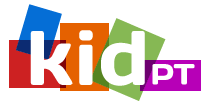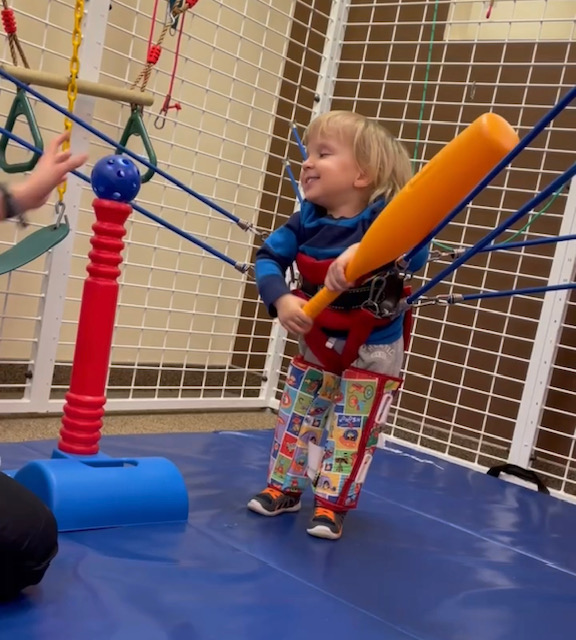

- Call 908 543 4390
- Email
- Dr.Joni Redlich PT,DPT


“My son can’t keep up with his twin.”
“My daughter is always tripping and gets frustrated.”
“We finally got answers as to why my child is delayed, but now what?”
Do these concerns sound familiar to you? Have you been worried about your child and wondering where you might find answers and help? If so, you’ve come to the right place! Let’s start by answering the question-
What is a Pediatric Physical Therapist and Who Do They Help?
Pediatric Physical therapists (PTs) are licensed health professionals who have specialized knowledge and experience in the unique aspects of working with children and their families to improve motor development, independence, fitness and active participation in the family and in the community. Pediatric PTs work with children from birth through adolescence and participate on teams with other specialists, including physicians, occupational therapists and speech therapists.
They work with children to improve their brain-body connection, balance, strength, body awareness, coordination, and movement skills from crawling and walking to jumping and hopping. Pediatric physical therapists work with children to improve their sensory awareness and motor abilities. Improvement these skills can have a far ranging impact on the child beyond the movement itself, such as improving confidence, success in school, and social interaction.

Pediatric physical therapy often looks like play, but that is part of the magic! Pediatric physical therapists know how to engage the child with fun, share the joy of movement and combine that with the science of the brain and body. All these pieces come together to stimulate to new skills that the child can use in daily life at home, at school and in the community. New skills means new confidence and new success!
How Does It Start?

The first step is to call our office, send us a message or download one of our reports to learn more. We will reach out to you to chat about what is going on with your child, what you have already done to help, and what you still need help with. At Kid PT, we know that a team approach will maximize a child’s overall development and that the FAMILY is the most important member of the team.
Some children will be referred to physical therapy by a pediatrician or other healthcare provider. Other times it is the parent who has concerns and comes directly to get answers. Regardless of how they found pediatric physical therapy, we will move to the next steps to see if physical therapy is the right match for the child.
Pediatric physical therapists treat children with various diagnoses, including cerebral palsy, developmental coordination disorder, Down syndrome, hypotonia, genetic syndromes, torticollis and developmental delay. Many children come to physical therapy without a diagnosis at all- and that’s ok too! The physical therapy evaluation is the first step for the therapist to identify what is causing the problems and to come up with a plan to make things better.
The physical therapy process begins with a conversation with the family to discuss general concerns and is followed by evaluation of the child in the context of their daily routines and activities. If the child is evaluated outside their natural environment, parents will be asked to report specific concerns related to the child’s daily life. This evaluation may include the child’s mobility skills, sensory and neuromotor development, flexibility, strength and endurance, posture and balance. Because children are children first, a lot of the evaluation will be done through play. Don’t be surprised if your child is having fun and keeps asking to come back!
Pediatric physical therapy uses a wide variety of approaches and strategies to come up with a treatment plan to help each individualized child in the way that will work best for them. Some of these strategies include developmental activities, sensory-motor activities, strengthening, motor learning approaches, balance and coordination exercises, adaptation of daily care activities and routines, equipment design, and orthotic prescription. The pediatric physical therapist will break down all of the pieces of the puzzle to identify a child’s strengths and weaknesses, connecting that to how they are functioning in daily life, and create a plan to improve things. Different physical therapists will have different tools in their toolbox. If you have worked with a physical therapist before, and you think you’ve tried it all already, you may be surprised to find out that not all pediatric physical therapists are the same. Different physical therapy approaches can lead to change that you never knew was even possible! To learn more about one of our specialized approaches called TMR- Tots & Teens, watch this video.
Where Does Pediatric PT Takes Place?

Children are seen by physical therapists in different settings. Although the specialized physical therapist is the thing in common in each of these settings, their role will depend on the many different factors.

Pediatric Physical Therapy is a Journey
The picture of PT intervention for children varies greatly based on age, diagnosis, and severity. PT with an infant will be play based, focus on the family, maximizing sensory/motor experiences and supporting the family to best meet the needs of the child. As the child enters preschool age the goals evolve to increased independence with mobility, self-care skills and success on the playground. In addition to mobility, posture and gross motor skills, physical therapy for the older child may also focus on helping to develop recreation, fitness and leisure skills that can take them into adulthood. The picture is also different based on the physical therapy approach being used. At Kid PT, we use a wide variety of approaches, but centered in all of them are child-centered, ability based, neurodivergence affirming care.
Kid PT offers both Physical and Occupational Therapy at our clinic. You click here to see more about our services. If you’d like to learn more about the role of Occupational Therapy, you can click here. For an overview of the Kid PT approach to children with Developmental Delays, take a look at this page. Concerned about your child and questioning if physical therapy might be useful for them? Give us a call or send us an email. We are always happy to answer any questions you may have.

 Ann Van Middlesworth Accessible Playground
Ann Van Middlesworth Accessible Playground 
Leave a Reply
Want to join the discussion?Feel free to contribute!